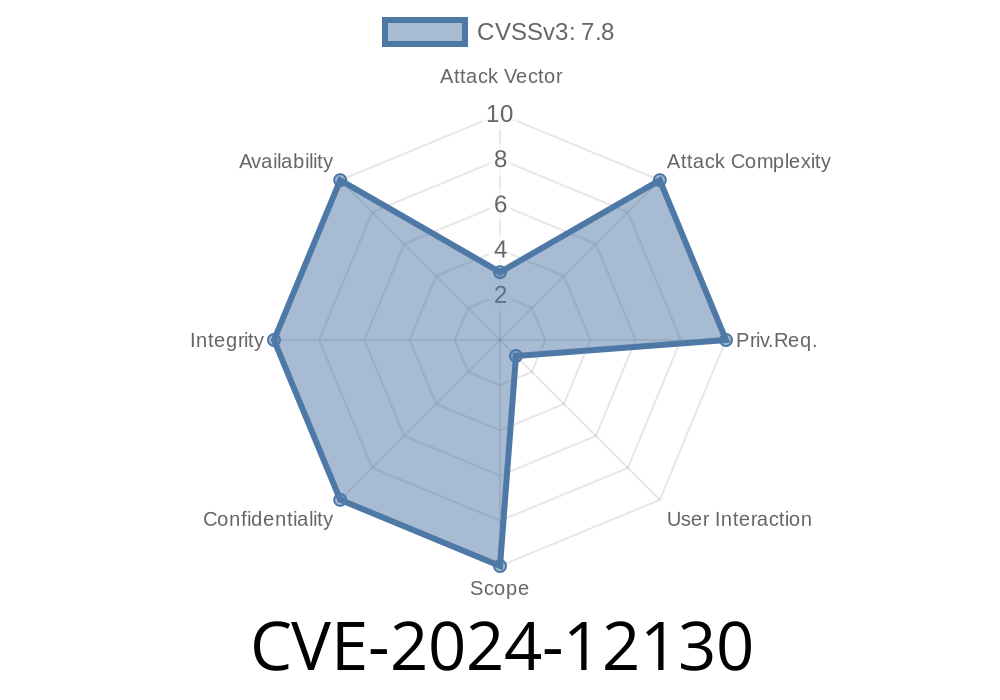Arena® simulation software by Rockwell Automation is widely used for process modeling and analysis. In early 2024, security researchers discovered a critical vulnerability (CVE-2024-12130) that could let a hacker execute code remotely if a user opens a malicious file. This post breaks down what this vulnerability is, how attackers exploit it, and what you can do to protect yourself.
What Is CVE-2024-12130?
CVE-2024-12130 is classified as an “out of bounds read” vulnerability in Arena®. This means that Arena can be tricked into reading past the end of a buffer in memory. When a program reads outside the space it’s supposed to, it can lead to a crash—or even let someone run their own code on your computer.
According to Rockwell Automation’s official advisory, this affects several versions of Arena®.
How Can Attackers Exploit This?
By crafting a specially-formatted DOE file (the file format Arena uses), a hacker can insert data that Arena will read outside of its normal bounds. If a legitimate Arena user opens this file, the bad data gets read, and the program runs code an attacker placed inside the file.
In easy language: if you open a DOE file someone sends you, and it’s malicious, it can let them take over your system.
Why Is It Dangerous?
- No user privileges needed: If the file is opened, the exploit runs in the context of the Arena® user.
Here’s a simplified example of how an out-of-bounds read can happen in C/C++-like languages
// Vulnerable function reads user-provided data
void readDOEChunk(char* data, int length) {
char buffer[50];
for (int i = ; i < length; i++) {
buffer[i] = data[i]; // No check if i < sizeof(buffer)
}
}
Problem: If length is bigger than 50, the function will read and write past the buffer, causing a buffer overflow. With careful crafting, this can let the attacker inject code that gets executed.
An attacker could create a .doe file that overflows the expected input like this (Python example)
# Build malicious DOE file with overflow payload
payload = b"A" * 60 # Overflows buffer (exceeds 50)
payload += b"\x90" * 16 # NOP sled for shellcode
payload += b"\xcc\xcc\xcc\xcc" # Example 'bad' instructions (breakpoints)
with open("evil.doe", "wb") as f:
f.write(payload)
When evil.doe is opened in unpatched Arena®, the overflow triggers unusual code execution.
Real-World Exploit Impact
This isn’t just theoretical. If an attacker sends you an email with a .doe Arena® project or shares it via cloud storage, opening it could compromise your PC or your company’s network.
Apply patches and updates. Rockwell Automation provides guidance here:
Rockwell Security Advisory: CVE-2024-12130
References & Further Reading
- Rockwell Automation Security Advisory
- MITRE CVE Detail: CVE-2024-12130
- Arena Simulation Software Overview (Rockwell)
Conclusion
CVE-2024-12130 is a serious flaw in Rockwell Arena’s file parsing code. As always, never open project files you didn’t create or aren’t expecting. Only download and update Arena® directly from rockwellautomation.com.
Timeline
Published on: 12/05/2024 18:15:21 UTC
Last modified on: 12/17/2024 15:52:01 UTC
